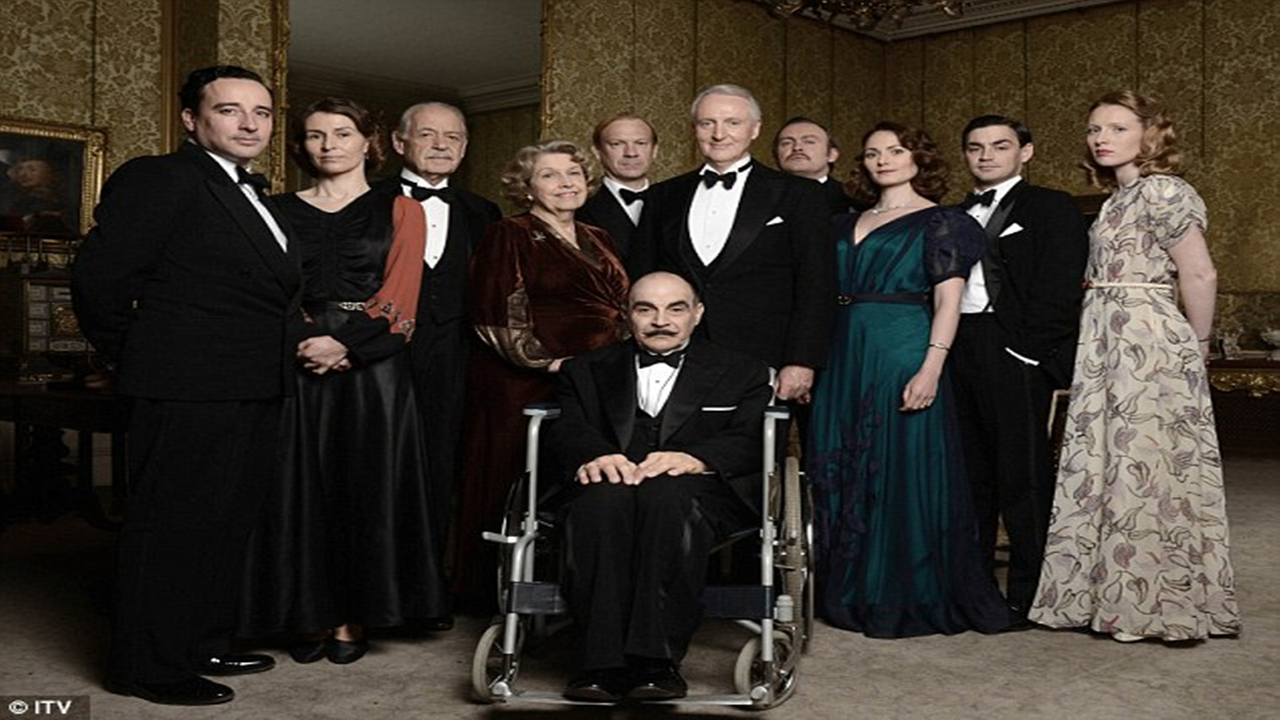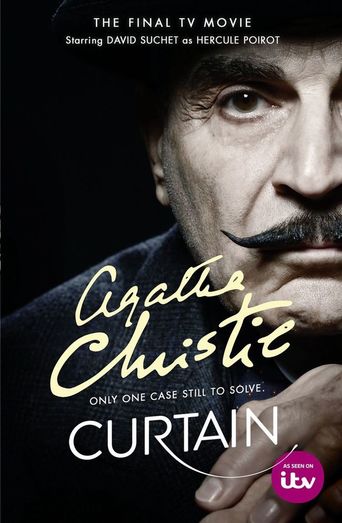

Truly Dreadful Film
... View MoreSadly Over-hyped
... View MoreHorrible, fascist and poorly acted
... View MoreIt is both painfully honest and laugh-out-loud funny at the same time.
... View MoreAs a reader of Dame AC for 76 years I always found HP difficult. For me, Suchet's triumph - genius - is in constructing a reality from an impossibility. As for Curtain, it is no surprise that the author delayed publication for 30 years, almost until after her death. Poirot and Hastings have aged beyond recognition and several devices in the novel would appear to be stolen from other stories except that it is actually the other way round. Chandler would probably have called it a reverse cannibalization. The author appears to have taken a strong dislike for her creation and takes her revenge not only on him but on Hastings too who is treated with contempt by both the detective and the daughter. I suspected what my impression would be and should have avoided seeing the production but my curiosity as to how Alice Orr-Ewing would portray Judith was too strong. Curiosity killed the cat.
... View More"Curtain" is the last of the Poirot stories, which means the end of David Suchet's run as Poirot. To me, he will always be the definitive Poirot.Hastings, who has just lost his wife, is asked by Poirot to meet him at Styles, the site of a previous case thirty years earlier - their first.Styles is now a guest house. Poirot's health is failing, and he is confined to a wheelchair, due to his arthritis and bad heart. But he still has all his marbles. He tells Hastings that there is a murderer on the premises, and he needs Hastings to be his eyes and ears. The people there include the owners, Daisy and Colonel Toby Luttrell, a spinster, Elizabeth Cole, an aristocrat, Sir William Boyd Carrington, a birdwatcher Stephen Norton, a womanizer, Major Allerton, a chemist Dr John Franklin and his wife Barbara, her nurse, Nurse Craven, and Dr. Franklin's lab assistant, who just happens to be Hastings' estranged daughter Judith. One of these people is a killer. But can Hastings take his attention off his daughter long enough to help Poirot find him or her? Then the murders start. What does Poirot know? Can he solve his final case before his final curtain? A dark mystery, but a good one, with Poirot's illness permeating the entire episode. The murder in the end is actually the McGuffin - the big story is that this is Poirot's last case. My big complaint is that Miss Lemon and Superintendent Japp were not brought back for the episode.I know some people didn't like the turn this series took, and it's true, the seasons with Miss Lemon and Hastings were the best -- they had humor and lightness as well as mystery. But throughout all the seasons, there were always good episodes.Will be missed.
... View MoreI really don't like to admit this, but CURTAIN has to be one of the weakest entries in the entire Poirot canon. Hettie Macdonald's production sets up an intriguing situation, but the resolution is weak in the extreme, with the surprise plot-twist involving Poirot himself seeming particularly implausible. I realize that this is probably in the source-text, and that screenwriter Kevin Elyot was trying to make the best of a weakly plotted book, but for me the episode simply did not work in televisual terms. On the other hand there were incidental pleasures; it was nice to see Hugh Fraser returning as Hastings, the eternal innocent unable to see what was distinctly in front of him, supported by a clutch of memorable cameos from Aidan McArdle, Helen Baxendale and Anne Reid as a particularly sour-faced old woman. The lighting was appropriately shadowy, making every character in the episode seem suspicious. Towering above everything was David Suchet's masterly performance as Poirot - as the detective taking his last bow on the stage, he was both clear-eyed yet moving as he realized that he no longer possessed the physical capacities to solve any more cases. He has been easily one of the best - if not the best - Christie characterization in any media adaptation of her work.
... View MoreI loved the storyline and it worked quite well - to a point. The setting, however for me was really mundane and drab. The support cast besides Norton were uninteresting and their characters were not developed at all therefore leaving me with zero empathy for any of them. I would really have loved to have seen Ms Lemon and Jap in the final episode. They were sorely missed. Could they not have extended the episode by ten minutes and covered a memorial at least where we could have seen some emotion from them? Or at least give us, the viewer a chance to say adieu? There was little or no emotion and I actually felt at the end... "meh" I was astounded at how badly Poirot treated Hastings in this final episode! He treated him with the utmost contempt and was unnecessarily cruel towards him. Basically, I thought for a final episode, it missed a great opportunity to let us, the viewer feel saddened by the death of Poirot. Alas, I will miss the old Poirot....not the nasty mouthed bitter old man he turned into. I found myself feeling sorry for Hastings and peeved off with Poirot!
... View More